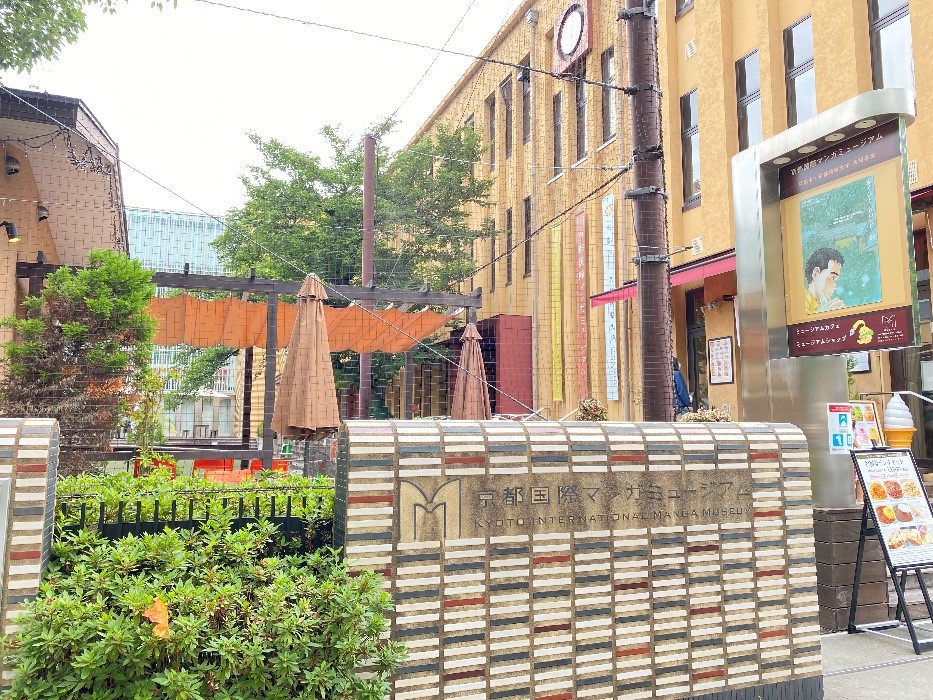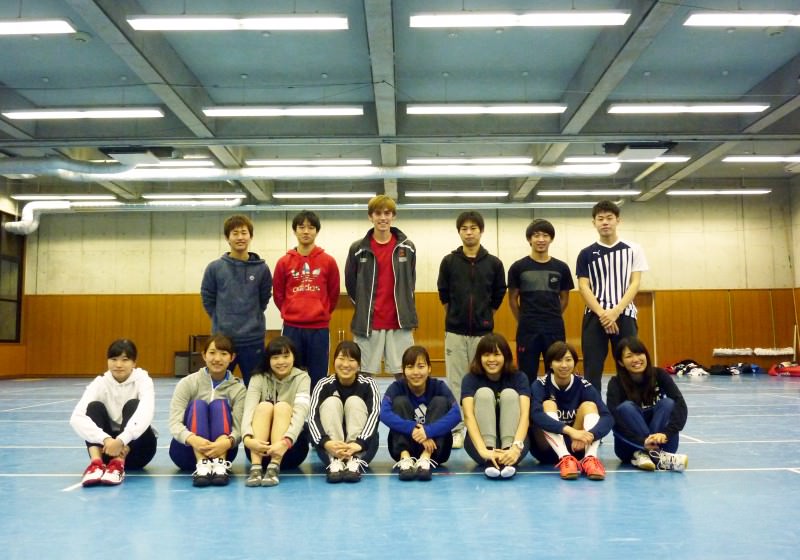Making Japanese Friends on Study Abroad Part 2
2016.07.28
With a little time, friends all around
Q: What is your school environment like now?
A: Now I’m studying at Ritsumeikan University in Kyoto, and I’m going to classes about twice a week or so. My classes are in English, but they’re in the same building with other Japanese students. There are chances to take classes with other Japanese students, too.
Q: Do you find it easy to interact with Japanese students now?
A: Sure. My classes are in English, but with the others in my seminar room, we talk in Japanese. We’re really close; we have BBQs together, go on trips. Recently I went to Hokkaido with some of my friends from my seminar room. We hitchhiked around the island because everything’s so spread out. Lots of people gave us rides, sometimes riding in the back of trucks. That was fun! Sometimes we go on long bike rides, too, like around Lake Biwa.

Q: Have you done any part-time jobs in Japan?
A: I was a private English tutor for a while. But other than that… I’d really like to try working part time at a ryotei restaurant [Traditional, often luxurious Japanese restaurant]. I’d love to try that, but you need a license to work as a chef in ryotei, and I think they usually want women servers, anyway.
I’ve worked as a tour guide here in Kyoto, too. Mostly it’s for tourists from South East Asia: I take them around the famous spots in Kyoto. It can get a little boring, to be honest, because it’s always the same route in these major tourist spots: the Golden Pavilion, Kiyomizudera, Arashiyama. I want to take them somewhere else; there are so many other places, too! (laughs)
It’s actually gotten to the point where I know more about places in Kyoto than a lot of my Japanese friends. They live here, or they grew up here, but they don’t know a lot of the city. So I end up showing them around many little places. It’s kind of funny.
Q: Have you made many friends through your part-time job/s?
A: Yes. I’ve made about half of my friends in Kyoto through my seminar room, another half through work as a tour guide, and then there are my underclassmen friends and other friends from school.
Bridging the divide between international and Japanese students
Q: Do you ever feel like Japanese students are nervous to approach you or other international students?
A: No, not really. When my Japanese wasn’t very good, it was hard to have deeper conversations with people. Some people just aren’t interested in talking to you, too—maybe they’re not interested in talking to people from other countries, but you can’t help that.
I try to be pretty friendly from the start, but some people don’t like that: they don’t think I’m polite enough, because I don’t use formal speech. Sometimes I do get scolded for that. (laughs) But I’m not really interested in that kind of hierarchical thinking. When people are interested, they’ll talk to you, too, and you’ll become friends. Just try talking to them.
Q: On study abroad, did you try in particular to make friends with Japanese students?
A: I don’t really think it matters where your friends are from. I don’t really worry about it. To tell the truth, I think it’s the international students who have a strong desire to make Japanese friends that end up getting really disappointed. It’s better just to make friends with people, naturally. Don’t worry about where they’re from.
Q: Did you ever feel like you had to separate a bit from the international student community?
A: I guess I did have to separate a little bit from the Indonesian student community, so you don’t end up just in that community the whole time. Some Japanese students might feel like it’s easier to talk to you if you’re not so involved with other international students. That doesn’t mean you can’t talk to your non-Japanese friends, of course. But just a little bit of distance, the right amount, might be good.
Any advice?
Q: It seems like you haven’t had any trouble making friends with Japanese students. Have you had any difficulties?
A: I think it depends on the person in the end. Some people just have a wall up, no matter how friendly you are. It really depends on the individual. I just don’t talk to people who aren’t interested. If you care too much about just making Japanese friends, you’ll probably have a hard time. It can be a good experience to try and fail, too, though. Alcohol helps, too.* (laughs)
Really, though, people love food, too! House parties are great for making friends. I have a lot of house parties with my friends—I’ll invite people over, or sometimes people will ask me to cook. Sometimes I make Indonesian food—I’ll get some instant spices from the import store. With some good food and drink, it’s pretty easy to talk to people!
Amongst Muslims, there are limits on what you can eat, right? But I think it’s a shame to let that keep you from going to parties and dinners with people. There are times that you’ll want to be more reserved, too, and in that case, you can stick to your teachings by making a Halal meal at home, and then invite your friends over to come try some, too.
*Be advised: The legal drinking age in Japan is twenty.
Q: Do you have any advice for future international students hoping to make friends in Japan?
A: Don’t freak out too much. Just take it easy, talk to people. Being in Japan doesn’t change anything: everyone’s human, and the way you talk to people anywhere shouldn’t really change. In Indonesia, there are lots of people with different backgrounds, different beliefs and religions, but you basically treat everyone the same. I guess my advice is not to think of yourself so much as a “study abroad student” [as opposed to a “Japanese student”].
Also, alcohol! (laughs) And know your country’s food: if you cook local dishes for people, they will come!











